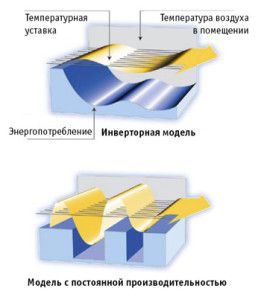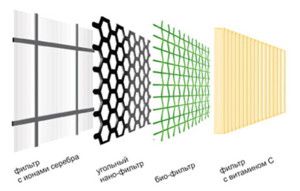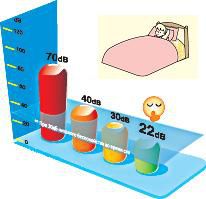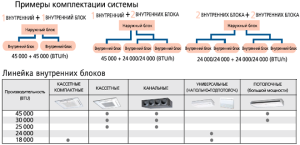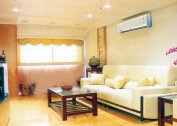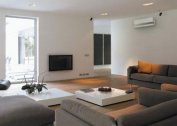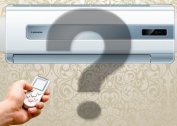Long-term high-quality work of climatic equipment provides its reasonable choice. How to choose the right air conditioning for an apartment in terms of volume and other parameters of the room? What should be considered first?
How to choose the type of split system for an apartment and a house
You must immediately determine the type of chiller. Window and mobile candy bars in this article will not be considered, since their purchase is justified only in extreme cases. Split systems with two blocks (external and internal) are characterized by the division into types relative to the design of the room module.
In standard living rooms, household wall-mounted air conditioners are taken, the indoor unit of which is hung on the wall closer to the ceiling. In rooms of complex configuration or with a large glazing area, where the wall module cannot be fixed, they acquire a universal split system. It is also called a cantilever or floor-ceiling. The unit is mounted either slightly above the floor on the wall or to the ceiling.
Cassette and duct air conditioners are purchased in rooms with high ceilings and a large area. More often they find application where it is planned to cool / heat several separate zones. But this applies more to the selection of air conditioning for the home, and not in the apartment. Column split systems in residential buildings are very rare, since they have high cooling capacity and powerful airflow. Sometimes you can find columned air conditioners in country houses in a large living room or dining room.
All types of air conditioners except wall-mounted are semi-industrial (commercial) type of climatic equipment.
Design and installation conditions of air conditioners
The choice of type of split system is closely related to the design and installation conditions. Somewhere, you may need an elongated track or an increased elevation difference between the system blocks, someone needs super thin internal modules to fit them into small gaps between windows. Some users manage to squeeze a compact air conditioner between the riser and the wall.
If the question arises of how to choose an air conditioner for the home, so that the interior is not disturbed, and the installation does not cause problems, pay attention to non-standard series of split systems. LG has these, Gree, DAIKIN, MITSUBISHI ELECTRIC, Panasonic, Mcquay.
Air conditioner power calculation
The fundamental factor in the purchase is the selection of power split system. By power is meant not energy consumption, but cooling capacity, which is indicated in the technical passport and on the nameplate of the device itself. For apartments and small office buildings, there are simple calculation formulas.
In a simplified version, the right choice of air conditioning for power can be as follows: every 10 m² of premises correspond to 1 kW in the cold.
It is also important to take into account the heat surplus coming from people, equipment, lighting, windows and doors located there. If the room is on the upper floor, on the sunny side or has panoramic glazing, then, accordingly, the excess heat will be excessive, and the air conditioner will have to suppress it in an enhanced mode.
For all heat inflows in a simplified version of the calculation of climate control, 15 to 30% of additional power is laid.When the room is located on the north side, not on the top floor, and the number of people constantly working there and working equipment is limited, it is enough to lay 15% of the main figure received.
For example, a room has an area of 20 m². It lives one person who uses one computer and one TV. The window faces northwest, does not open often. The last floor. It turns out that without taking into account heat inflows, it is enough to take a split system with a capacity of 2 kW, and when they are taken into account, it is necessary to add another 20% of 2 kW. In the end result, suitable cooling capacity will be about 2.5 kW - this corresponds to the 9th model of the air conditioner.
The second way is more complicated. It is used for more accurate calculations when selecting an air conditioner for an apartment. What is taken into account here? It:
- room volume (ceiling height, room area);
- all heat influx (people, animals, lighting, walls, ceilings, windows, doors, appliances).
The general calculation formula looks like this:
Q = Q₁ + Q₂ + Q₃
Q₁ - This is the heat released through the window and roof, walls. The values are calculated by the formula: Q₁ = V * q, where V is the volume of the room, and q is the heat transfer coefficient. Typically, for the south and north sides, q is 0.04 and 0.03 kW, and for sides with an average heat gain of 0.035 kW. The volume is calculated by the formula: V = S * h, where S is the area and h is the ceiling height.
Q₂ - This is the heat surplus from technology. On average, the heat input from a working device is 30-40% of the rated power. Add up all the values and get the final result.
Q₃ - This is the heat of people. In a state of calm, average employment and severe physical stress, a person, accordingly, will excrete 0.1; 0.2 and 0.3 kW.
To simplify the selection of the air conditioner according to the volume of the room and heat influx, you can use the online calculator, where it is enough to simply enter all the values in the appropriate columns and click the "get result" button.
Air conditioner functions: cold or cold + heat
What are the other criteria for choosing a cooling unit? Correctly choosing an air conditioner for an apartment will help taking into account the needs not only in the cold, but also in the heat. If a person intends to bask with his help in the fall before turning on the heating, then they buy a reversible model. In another way they are called air conditioners operating in the heat pump mode.
Inverter or start-stop air conditioning to choose?
Often, the buyer asks himself about which air conditioner to choose: on / off (start-stop) or inverter. If the plans mean frequent operation of the system, and not only in the autumn, but also in the winter, then they prefer the second. Inverters have a wider range of operating temperatures, and the smooth adjustment of the compressor allows the device to operate quietly and more economically. Although the repair of the start-stop model will cost less, since it has less complex electronics.
Main technical characteristics of air conditioners
It is important to accurately select the air conditioner according to the parameters indicated below:
- power consumption;
- energy efficiency;
- the noise of both blocks.
All these data are indicated in the technical passport of the device and on the nameplate.
Power consumption shows how much the device consumes on average per hour. Energy Efficiency (ERR / COP) is the difference between consumption and the production of cold or heat. The higher these values, the more productive and economical the technique works.
For modern air conditioners, this figure sometimes exceeds 3 kW, and manufacturers DAIKIN and MITSUBISHI ELECTRIC have released several series of inverter split systems with energy efficiency of 4-5 kW.
The noise for the indoor unit should not exceed 30-32 dB in normal mode and 25-27 dB in the night, since these are the parameters that the human ear normally perceives. For the outdoor unit, these values may be slightly increased.
Air conditioning cleaning system
When wondering how to choose an air conditioner for an apartment, pay attention to the filtration system. As a rule, modern split systems are equipped not only with mechanical "grids" of coarse cleaning, but also with fine filters that trap bacteria, viruses and fungi. These include antibacterial, catechin, plasma, coal and deodorizing systems.
Mechanical filters can be cleaned on their own once a month. Fine-cleaning systems cannot be exposed to the same effect. It is worth remembering that over time, any filter loses its quality, so it requires regular replacement.
Additional functionality
Speaking about a properly selected air conditioner in all respects, they usually mean precisely selected additional functions of the climate technology. What can a split system be equipped with besides standard modes?
Most often in the characteristics of the air conditioner can be found:
- turbo mode - accelerated achievement of the set parameters at maximum power at the beginning of work;
- defrost mode - when a large amount of snow or ice accumulates on the heat exchanger of the outdoor unit, it automatically defrosts;
- night mode - the device spends less energy to achieve the desired temperature and less noise;
- self-diagnosis - when turned on, the air conditioner tests all its settings and detects malfunctions, upon detection of which it gives error codes;
- automatic mode selection - various sensors control temperature, humidity and other parameters of air, regarding which the system itself selects the necessary mode;
- self cleaning function - after completion of the operation, the air conditioner automatically drains the heat exchanger and fan, thereby killing bacteria and fungi that multiply in conditions of high humidity.
The more complex automation in the air conditioner, the higher its cost. Do you need all these "chips" in everyday use, decide who is puzzled by the selection of air conditioning in an apartment or house.
Home Air Conditioner Manufacturers
Several dozen manufacturers today offer a huge number of split systems with a diverse design and a whole list of advantages in technical data. How to choose the right air conditioning in the apartment, based on the reputation of the manufacturer?
To determine the brand of the split system, you can read the information on the rating of manufacturers of HVAC equipment. Is it possible to choose an air conditioner for a home at a reasonable price, but with normal build quality and working components? in this case, you should choose among business-class devices, such as MDV, SHARP, PANASONIC, Toshiba and the like. Be sure to look at the country of assembly. Chinese devices are better not to take. Most often, complaints come precisely to them: the strong smell of cheap plastic, vibration and noise, breakdowns of the compressor or board, manufacturing defects and so on.
Split air conditioning system in a private house
It is much more difficult to choose an air conditioner for a home where there are a large number of separate residential and non-residential areas. Most buyers do not want to clutter up the building facade with many outdoor units, so they prefer a multi-split system that can combine one outdoor unit with several indoor units of various types.
Modern multi-split systems have the same characteristics as two-component systems: energy efficiency, low noise, high efficiency, compactness, large length of the freon line and permissible elevation differences of tens of meters. They work on modern brands of freon, which do not contain chlorine in the composition.
In simpler versions, fixed layouts are used, consisting primarily of wall units. When choosing an air conditioner for a house with many rooms of completely different configurations, with different ceiling heights, glazing areas and unequal requirements for the permissible temperature, multi-split systems with free equipment are preferred.
In inverter systems, the total performance of all indoor units can be 30% higher than the rated values of the outdoor unit.
Powerful high-pressure duct-type air conditioners, built into the subceiling space together with a system of distributing air ducts, can also cope with the task of air conditioning in the house. The indoor unit is often sewn up in the utility room, and the treated air easily reaches the desired premises through insulated channels.
The main advantage of a channel air conditioner in the house is the ability to supply air from the street. Of course, this is not done by the air conditioner itself. To mix in, you need a forced-air installation.
In multi-storey country houses, it’s not possible to select an air conditioner on their own, since complex schemes for calculating power, track length, the location of all components relative to each other and other electrical appliances in the home are used for this.
In large houses, multi-zone split systems with dozens of indoor units or chiller-fan coil units with a pumping station and supply and exhaust ventilation are often installed.
Regardless of the type of dwelling in which the air conditioner will be located, it is advisable for the future owner to contact specialists who will help to choose the right unit regarding all the nuances of the room and the wishes of the buyer himself.

